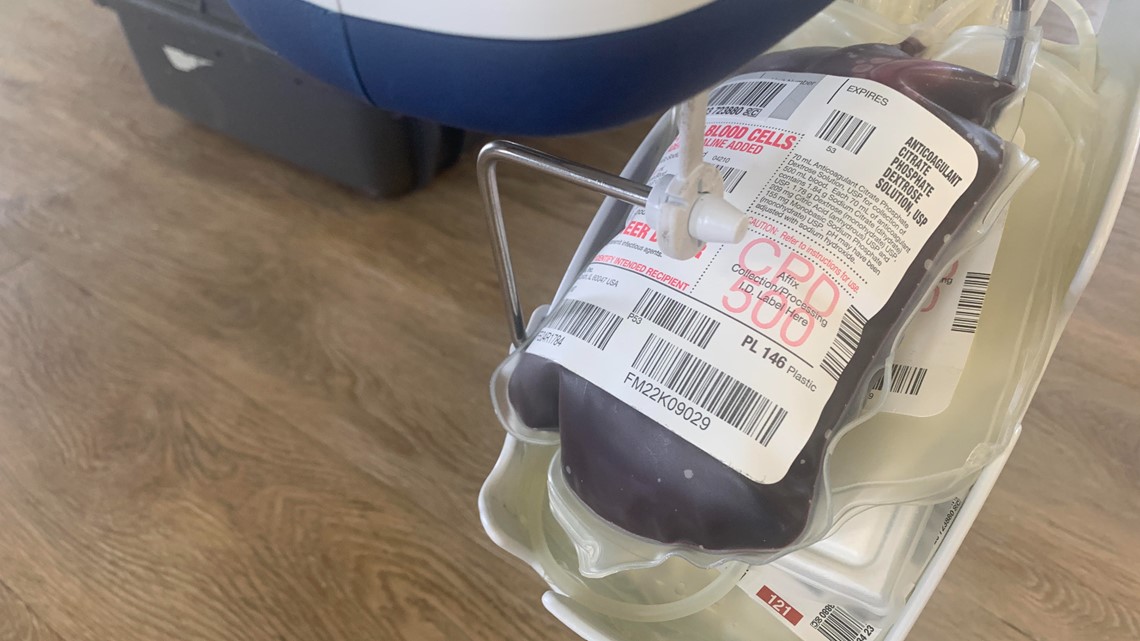MAINE, Maine — Hemochromatosis is one of the most common genetic disorders in the country, affecting about 1 million people.
Up until now the American Red Cross didn't allow people diagnosed with the disorder to donate blood. But now, that has changed.
Hemochromatosis is a disorder in which the body stores too much iron. Patients with the disorder need to get at least a pint of blood removed frequently to bring the iron to normal levels. If left untreated it can damage joints and organs.
David Lane from Arundel has never been allowed to donate blood, but he heard the Red Cross lifted those parameters last year and recently donated for the first time.


Lane went through all the steps to make sure he met all of the requirements to qualify and would like others with the disorder to know that they may be eligible to donate, too.
"It's nice that now it's going to be used for some good," Lane said. "They literally would take it and discard it in a bio-hazard waste, but now they will use it, and there's really no reason why they couldn't along the way except for whatever parameters they set up for the Red Cross."
The Red Cross is always in need of blood donors, so David said at least himself and many others now can help contribute to that blood bank.
The U.S. Food and Drug Administration regulates all blood collection activities across the country and has specific requirements regarding collecting blood from individuals with hereditary hemochromatosis, or HH.
In 2016, the FDA removed all special labeling requirements for blood collected from donors with HH if they met all other eligibility criteria. In order to implement these changes, it required careful planning and complex system updates by other entities like the American Red Cross.
"The Red Cross acknowledges that our past inability to accept individuals with HH has caused frustration for many who want to donate blood to help patients," Jennifer Costa, regional communication director for the American Red Cross in New England, said. "We are pleased to share that we were able to start accepting these individuals -- as well as those taking testosterone, which can cause an abnormally high level of red blood cells -- to give on Aug. 1, 2022."
Click here for a link from the Red Cross on this new implementation.

